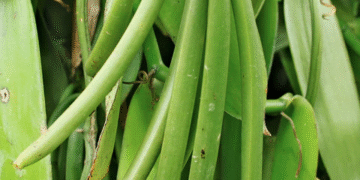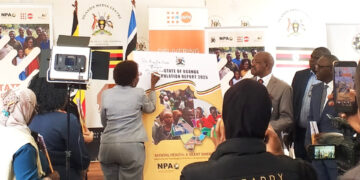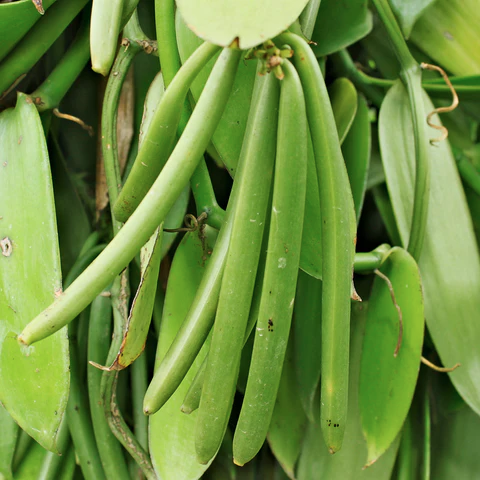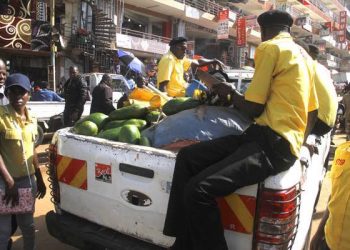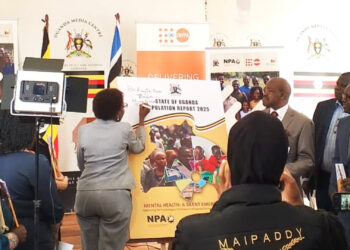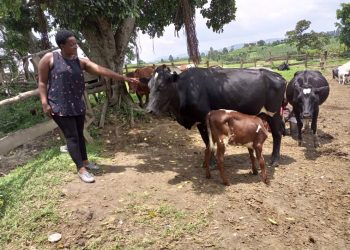By Leonard Kamugisha Akida,
KAMPALA
The Ministry of Agriculture, Animal Industry and Fisheries has raised concern over the increasing number of farmers abandoning vanilla cultivation in favour of other cash crops such as cocoa and coffee.
The State Minister for Agriculture, Hon. Fred Bwino Kyakulaga, made the remarks while launching the 2025 vanilla harvest season at the Uganda Media Centre in Kampala on Tuesday.
“Some farmers are considering abandoning vanilla in favour of higher-value crops like cocoa and coffee,” Kyakulaga said, attributing the trend to price volatility in the global vanilla market.
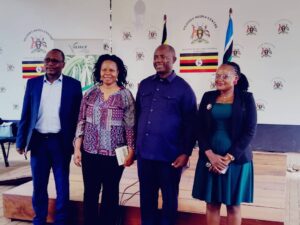
According to the minister, fluctuations in vanilla prices, driven by global supply disruptions and overproduction, particularly in Madagascar-have significantly influenced farmers’ decisions.
“Vanilla remains a volatile commodity. Global price trends, often caused by overproduction cycles and climate-induced shocks in Madagascar, continue to influence farmer choices here in Uganda,” he said.
Despite the challenges, Kyakulaga said Uganda’s vanilla industry remains resilient. He noted that according to Bank of Uganda statistics, the country is currently ranked as the world’s second-largest exporter of vanilla.
Prossy Tumushabe, Executive Director of the Association of Vanilla Exporters of Uganda Limited (VANEX), revealed that prices of fresh vanilla beans have risen from UGX 5,000 per kilogram last year to an average of UGX 8,000–10,000 in 2025.
Uganda exported 604 metric tonnes of vanilla in 2024, earning the country USD 16.6 million, a significant increase from 266 metric tonnes exported in 2023.
“This milestone secures Uganda’s position as the world’s second-largest vanilla producer for a second consecutive year, according to 2024 Bank of Uganda data,” Kyakulaga said.
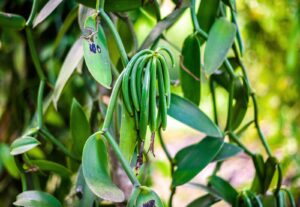 The minister also highlighted government interventions aimed at strengthening the vanilla sector. These include promoting value addition through the use of vanilla in cosmetics, beverages, and other products; securing international markets; and enforcing quality control measures.
The minister also highlighted government interventions aimed at strengthening the vanilla sector. These include promoting value addition through the use of vanilla in cosmetics, beverages, and other products; securing international markets; and enforcing quality control measures.
Kyakulaga urged local investors to support Ugandan vanilla farmers by incorporating locally produced vanilla into their products rather than relying on imported synthetic flavourings such as vanillin.
“You can use local vanilla in products like Uganda Waragi. I’ve seen drinks with vanilla flavour. I urge investors in cosmetics, drinks, and other industries to use vanilla sourced from Ugandan farmers,” he appealed.
The 2025 vanilla harvest season will officially begin on Wednesday, June 18, and run until September 18, 2025.
The Ministry has advised farmers to avoid harvesting immature vanilla beans and to sell their produce only to licensed buyers as part of efforts to ensure quality and compliance with international standards.
